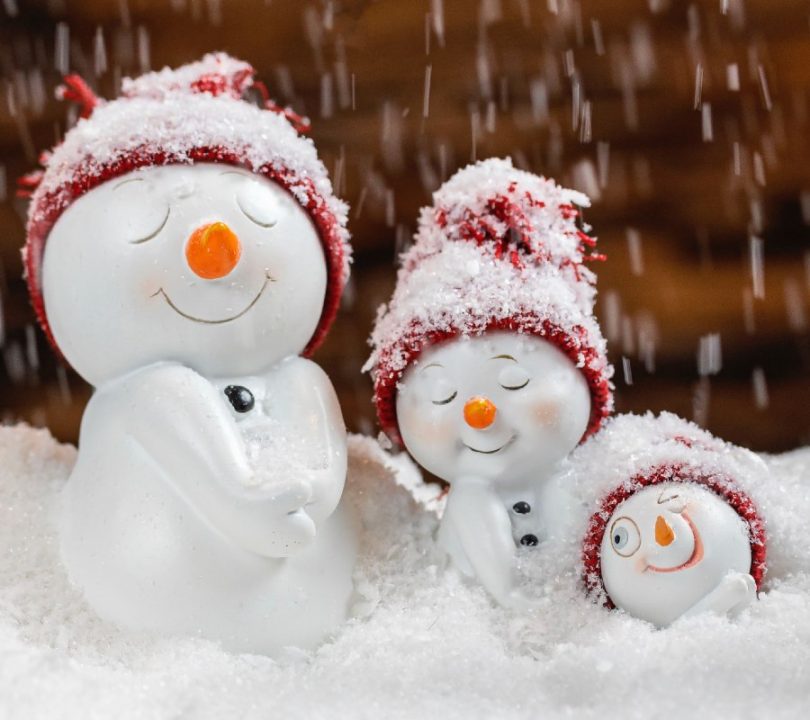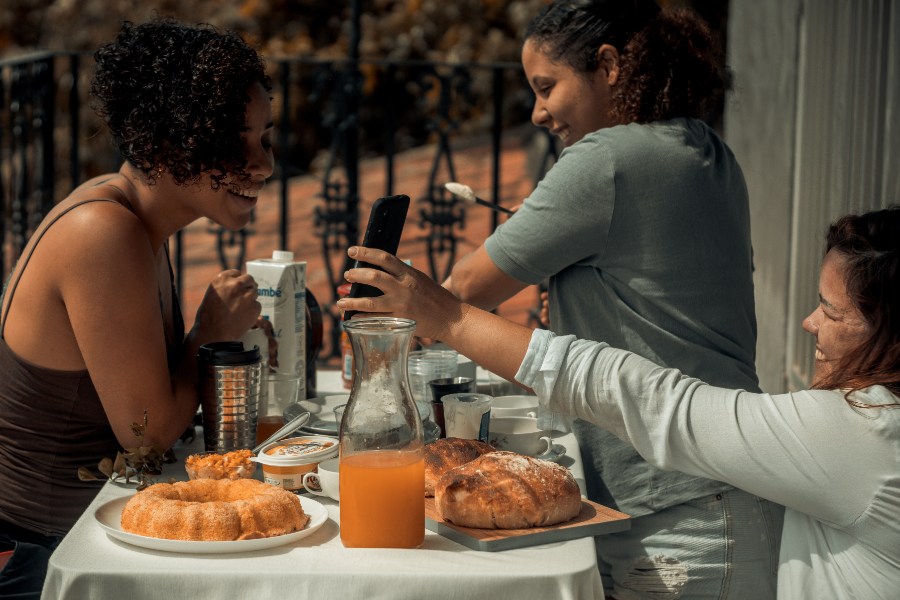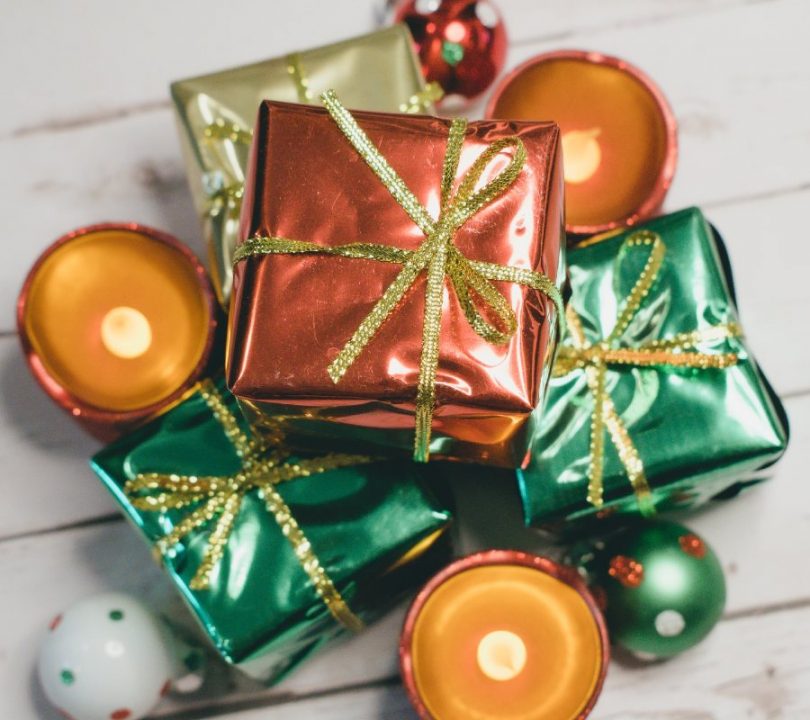The views expressed in our content reflect individual perspectives and do not represent the authoritative views of the Baha'i Faith.
As Christmas and the end of the Gregorian calendar year approach, I see many questions on my Facebook feed, asking: Do Baha’is celebrate Christmas? And if so, how do they commemorate the occasion?
As a community, Baha’is are encouraged to emphasize celebrating Baha’i Holy Days and discontinue celebrating other religious Holy Days —because, otherwise, why would we have Baha’i Holy Days? However, the global governing body of the Baha’i community, the Universal House of Justice, wrote in a 1989 letter to a Baha’i:
… there is no harm in Baha’is sharing Christmas with Christian relatives or friends. Indeed, families may contain both Baha’is and non-Baha’is, and the participation by Baha’is at celebrations of Christmas or of other religious observances, should not be made into a source of conflict but rather be used as an opportunity for demonstrating the honor due to other religions and also as an incentive for developing the celebration of Baha’i Holy Days and anniversaries.
I’ve been reflecting on this a lot lately, especially as we hunker down for a lonelier winter in this global pandemic.
Having been brought up a Baha’i myself, my parents worked hard to instill a Baha’i identity in our family. The Baha’i Faith has few traditions, which could also be considered as habits that we strive to implement in our day to day lives, such as prayer and service. This meant my family observed Baha’i Holy Days and other significant days — such as Ayyam-i-Ha; Naw Ruz; Ridvan; and the birth of the Twin Manifestations, the Bab and Baha’u’llah — with unique activities surrounding gift-giving, hospitality, service, and charity. We invited our extended family, friends, and neighbors to join us in our ever-evolving family traditions.
RELATED: Every New Era Brings A New Calendar
In my childhood and youth in Australia, we celebrated Christmas with my father’s side of the family, who carry strong Irish Catholic traditions. Every year after my grandma attended mass, we gathered at a long grouping of tables covered in Christmas crackers and decorations, put on colorful paper crowns, and enjoyed cold cuts, salads, and a BBQ on the back patio by the pool, in our swimsuits, on a hot Australian Christmas Day. We’d exchange very basic gifts around a decorated, well-lit, plastic Christmas tree. What really stuck with me was the time we spent together: simple but profound.

Fast-forward about 20 years: I’ve moved to Canada and found myself a wonderful Prairie husband, who discovered and adopted the Baha’i Faith in his youth. I love his parents to bits and have loved joining in on their Ukrainian-influenced Roman Catholic Christmas celebrations the past couple of years that we’ve been together (the Saskatchewan winters, not so much!).
This will be the first year we won’t be joining my husband’s family for Christmas, and the first one my husband has missed in his entire life, all because of this darn pandemic. For the first time in both our lives, no external circumstances or forces are influencing either of us to celebrate Christmas. However, I feel this sense of longing for celebrating something this year. For as long as I can remember, this festive period between Christmas Eve and New Year’s Eve has always been filled with so much warmth, joy, service, the presence of God, and the coming together of families and friends. So how do Baha’is celebrate the true meaning of Christmas while still honoring their Baha’i beliefs?
I turned to Facebook to see how other Baha’i families celebrate this festive season while also strengthening their own traditions as a family. The following suggestions could be adapted for many holy days and faith traditions — not just Christmas. Not all are suitable for people following serious social distancing restrictions, but there are definitely ones that we can try and adopt to some degree, or look forward to trying when we can all be together again.
Take Time to Talk About it:
Come together as a family or as a group of friends, and discuss how you would like to create family traditions surrounding all holidays. This conversation could look at the yearly calendar, the various community groups and circles you are a part of, and the different faiths and traditions you want to honor as a family, including Baha’i, Jewish, Muslim, Hindu, Zoroastrian, Christian, and other traditionally spiritual Holy Days. Having a conversation and making a decision as a family builds unity and gives room for all to contribute creatively.
Create an Interfaith Calendar:
You could create an interfaith calendar of all the religious traditions and holy days. Learn how your Jewish friends celebrate Hanukkah, and light a Menorah for each of the eight days. Celebrate Diwali in your home with your Hindu friends, or offer to cook dinner for your Muslim friends during the holy fasting month of Ramadan. There are so many other important religious holy days to commemorate during the Christmas period that we can nurture and learn from.
Decorate Your Space:

Many of us find joy and comfort in decorations and festive lights throughout the year — and they’re especially lively during the dead of winter. You can decorate your home with winter-inspired decorations and call it a “winter wonderland” or “winter festival.” Children could come together to create decorations and ornaments that inspire peace, unity, and joy, place them around the house or gift them to neighbors.
RELATED: How Interfaith Prayer Gatherings Are Changing Communities
Make Meals Meaningful:
Instead of decorations, some families opt to dress their best and have a special meal together. I read that one Baha’i family uses this time to bake together, and while they bake, they consult on various service ideas for the upcoming calendar year. They then gift their food and baking to friends in the neighborhood or people in need. Another Baha’i family hosts a special dinner to invite friends who did not receive an invitation to Christmas dinner.

RELATED: Family Meals: A Space to Bond, Reconnect, and Heal
Get Creative With Gifts:
Many families save the Christmas gifts they received for opening in late February during the Baha’i festival of Ayyam-i-Ha. Some receive gifts at Christmas and distribute gifts on Baha’i Holy Days. Others pass on participating in Christmas gift exchanges with family and instead find ways they could collectively be of service to their community.

Bring People Together to Pray:
One person shared that they host an annual interfaith prayer gathering for their friends and neighbors on the theme of Christmas and the birth of Jesus Christ. They include writings from Christianity and the Baha’i Faith that highlight the station of Jesus and his importance to the world — like these words from Baha’u’llah, the prophet and founder of the Baha’i Faith:
We testify that when He came into the world, He shed the splendor of His glory upon all created things. Through Him the leper recovered from the leprosy of perversity and ignorance. Through Him, the unchaste and wayward were healed. Through His power, born of Almighty God, the eyes of the blind were opened, and the soul of the sinner sanctified… We bear witness that through the power of the Word of God every leper was cleansed, every sickness was healed, every human infirmity was banished. He it is Who purified the world. Blessed is the man who, with a face beaming with light, hath turned towards Him.
Watch Some Movies:
Don’t get me wrong. I’m a sucker for holiday movies on the Hallmark Channel. But if I want to celebrate the true meaning of Christmas, I think the best way to do this is to watch a documentary that tells the story of the courageous life of Jesus Christ himself, to learn of his miracles and sacrifices.
Be of Service:
Another way to celebrate the true meaning of Christmas is to focus on the concept of service and giving. There are many ways to do this. One could be to pack meals and deliver them to the homes of elderly neighbors. Another could be to offer a hand at the local shelter for their annual Christmas feast. People who work shift jobs sometimes offer to cover the shift of their Christian co-workers so that they can celebrate Christmas with their families. Service could also mean coming together with some others to clean up a local park or planning a small neighborhood children’s festival that focuses on joy and service.
One thing is for sure: there are many ways for Baha’is — and people of other faiths — to inclusively take part in the spirit and festivities of the season while also strengthening their family and faith traditions. The beauty is that there’s room for creativity, flexibility, and honoring the meaning of Christmas, no matter what faith you are.

















Comments
Sign in or create an account
Continue with Facebookor